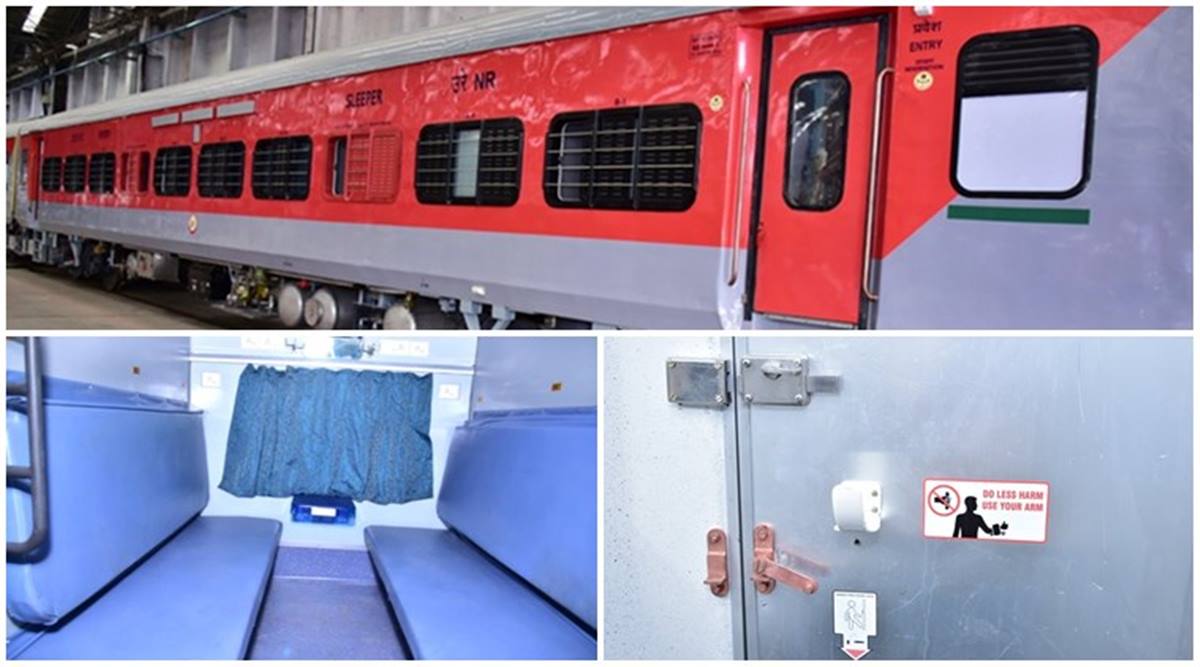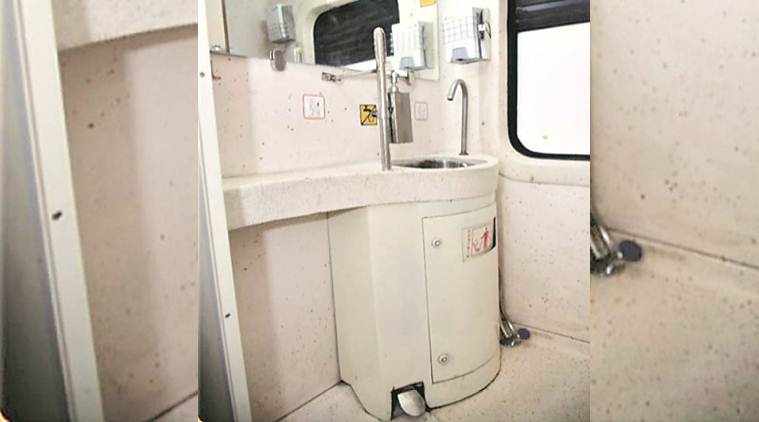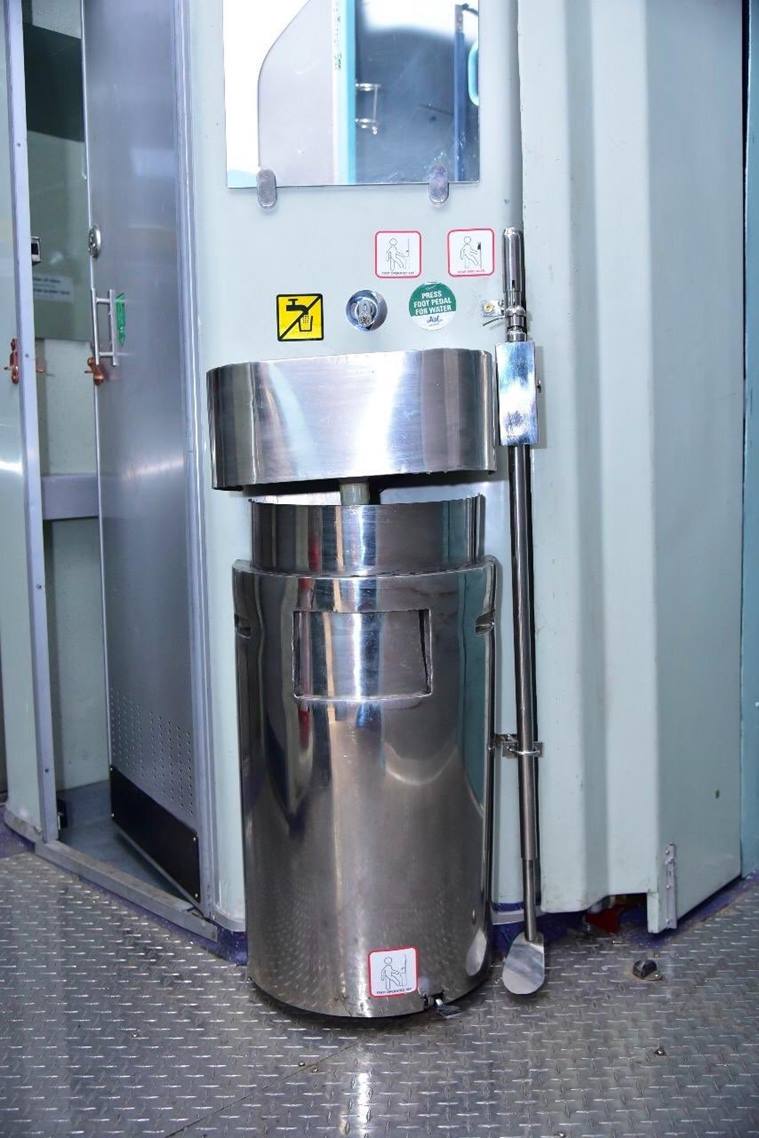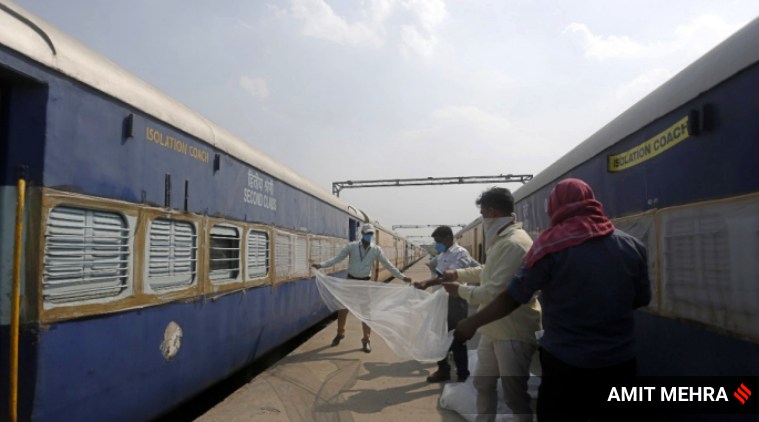 Journey by trains, however, won't be returning to pre-Covid levels anytime soon, and Railways have come up with several salient features
Journey by trains, however, won't be returning to pre-Covid levels anytime soon, and Railways have come up with several salient featuresEver since Railways resumed limited passenger services from May 12, it has seen a 15 per cent increase in travellers – from 70 per cent in May-June to 85 per cent in August – with some trains even running with waiting lists. As the festive season is set to kick in and demand rising, 80 new trains will be pressed into service from next week (September 12) in addition to the 230 trains that resumed earlier.
Journey by trains, however, won’t be returning to pre-Covid levels anytime soon, with Railways planning to do away with providing blankets, pillows, hand towels and sheets in its air-conditioned coaches even after the pandemic ends. Moreover, several trains and stoppages may be done away with for optimum and efficient utilisation of the available resources.
Besides, a special ‘post-Covid coach’, with hands-free amenities and plasma air purification system, is also set to be put on tracks soon for safety of travellers while QR code-based contactless ticket checking system has already been implemented by North Central Railways.
 Foot-operated water tap inside a modified coach. (File)
Foot-operated water tap inside a modified coach. (File)
🚂 80 additional trains from September 12
To cater to the spike in occupancy and the upcoming festive season, 80 new trains will be operational from September 12, reservations for which will begin from September 10. The additional services include a Vande Bharat Express from Delhi to Varanasi and a host of trains on key routes connecting Bihar, Maharashtra, Gujarat, Odisha, Uttar Pradesh, Madhya Pradesh, Tripura, Jharkhand, Karnataka, Delhi, Haryana, Rajasthan, Andhra Pradesh, Assam, and West Bengal. Moreover, the national transporter will also run “clones” of trains that see heavy demand to clear waiting lists.
The Railways had resumed limited passenger services from May 12, with 15 special trains departing from Delhi. On June 1, Railways pushed into service 100 more trains, including 17 Jan Shatabdis, five Durontos and a number of traditionally popular mail or express trains to various parts of India. A weekly Shramik Special train has been rolled out between Valsad in Maharashtra and Muzaffarpur in Gujarat.
 Hands-free amenities like foot-operated water tap and soap dispenser, foot-operated flush valve and latches in toilet door are among the salient features (File)
Hands-free amenities like foot-operated water tap and soap dispenser, foot-operated flush valve and latches in toilet door are among the salient features (File)
🚂 No blankets, pillows in near future
Ever since it resumed services, the Railways has stopped providing blankets, pillows, hand towels and sheets in its air-conditioned coaches. It seems, the trend will continue even after the pandemic ends, with passengers having the option to buy disposable blankets, pillows and sheets at stations at cheap prices. About 50 such vendors have set up shop in railway stations across India.
The Railways is estimated to spend Rs 40-50 for washing each linen set. According to estimates, there are about 18 lakh linen sets in circulation at present. A blanket remains in service for about 48 months, and is washed once a month. At present no new linen items are being procured.
🚂 Ready-to-eat food items in long-distance trains
The Railways is also not serving cooked food on trains, opting for packed and ready-to-eat food items instead. Sources said this practice too may remain “for some time” even after normal train operations resume. Some railway divisions are learnt to have started discussions with packaged food manufacturers and suppliers on the possibility of long-term contracts.
 The Railways has stopped providing blankets, pillows, hand towels and sheets in its air-conditioned coaches.
The Railways has stopped providing blankets, pillows, hand towels and sheets in its air-conditioned coaches.
🚂 Contactless ticket checking, plasma air purification in coaches
To ensure there is minimal human-to-human contact at common areas, Railways has developed a special ‘post-Covid coach’, which comes with several new features. Hands-free amenities like foot-operated water tap and soap dispenser, foot-operated flush valve and latches in toilet door are among the salient features.
For compartment doors, travellers will get forearm operated handle feature. Since copper has anti-microbial properties, the Railways has decided to use copper-coated handrails and latches in trains. “When the virus lands on copper, ions blasts pathogens and destroys the DNA and RNA inside the virus,” the Railways said in a statement.
Moreover, coaches will have plasma air equipment installed in AC ducts. “This equipment will sterilise the air and surfaces inside the AC coach using ionised air to make the coach Covid-19 and particulate matter resistant,” Railways said.
Moreover, the North Central Railways has implemented an innovative QR code-based contactless ticket checking system. The code can be scanned by the ticket examiners through hand-held QR codes scanning devices.
🚂 Zero-based timetable
A zero-based timetable, where some 500 regular trains will be discontinued and 10,000 stoppages be done away with, may also be adopted to adjust to the ‘new normal’, where demand for travel will more be of need-based. According to internal projections of the Ministry of Railways, trains with less than 50 per cent occupancy on average in a year will not find any place in the network. If needed such trains will be merged with other, more popular trains. Also, long-distance trains will not have stops within 200 km of each other, unless there is a major city on the way.
The new timetable will make room to run 15 per cent more freight trains on exclusive corridors at higher speeds. The average speed of passenger trains is projected to increase by around 10 per cent across the network.